Jul 6, 2015 | Focolare Worldwide
Teaching methodology: an interactive approach, open to dialogue, sharing, and re-working with the instructors, experts, and students together, through seminars, workshops, and debates. Subject matter: proposals, analysed and studied in the preceding 6 months by an international preparatory committee formed by several of the participating students with the co-operation of the experts.
- Relationships in healthcare activities
- Ethics in daily clinical practice, starting with several documents from international medical institutions, and finishing with clinical experiences on aspects such as end of life care.
Participants: students and young people from 20 to 35 years of age in the various professions of the biomedical field (medical doctors, nurses, physiotherapists, occupational therapists, etc.) coming from various countries. Maximum number of participants: 50 Languages: Portuguese, English, Italian, Spanish Objectives: Offer to healthcare professionals the skills necessary to care for the person and not only the pathology, and to remedy the fragmentation of care, guaranteeing that professionals are united in taking responsibility for the patient. At the end of the programme, a certificate of participation will be issued. Location: Cidadela Arco-Iris, Rua Senhora da Graça, 60 2580-042 Abrigada Tel. +351 263 799 995 + 351 263 790 131 Fax: + 351 263 799 091 Hours: The programme will start September 3rd at 9:00 a.m. and will conclude September 6th at 1:00 p.m. Cost: The cost, including meals and lodging for all days of the Summer School (starting with dinner September 2nd and ending with lunch on September 6th), transportation from the Lisbon airport to the location and return trip, and the touristic excursion to Lisbon, is 180€. Enrollment: Complete and send the registration form (www.mdc-net.org) to the address: mdc@flars.net. Registration will be accepted after the receipt of payment by means of a bank transfer to: ASSOCIAZIONE MEDICINA DIALOGO COMUNIONE (M.D.C.) IBAN: IT68L0335901600100000113321 BIC: BCITITMX For more information, please contact mdc@flars.net. ——————————————————————— Associazione Medicina Dialogo Comunione Via IV Novembre 7, 00046 GROTTAFERRATA (RM) Fax 06-94549841 Email: mdc@flars.net Website: www.mdc-net.org

Jul 6, 2015 | Focolare Worldwide
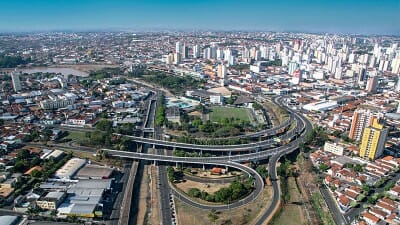 It was in the air. Too many times João had heard his parents argue, and the fact that he and his mother and brothers had to leave home because his father had a child with another woman didn’t surprise him very much. He was 16 then, he was involved in his parish, he had friends. Within him, though, he felt betrayed and dissatisfied, with a strong need for freedom, to be himself. It was an apprehension that led him to discontinue his studies. He took up his schooling again years later, only after he had found the real reason for living. “At 20 years of age,” recounts João, “I participated in a Focolare activity with the youth group from my parish. During those few days, I realized that the Gospel isn’t so much to be commented or reflected upon, as it is to be put into practice immediately. I was particularly struck by those passages which say how to treat our neighbors: the Good Samaritan, the Golden Rule. I had gone to the activity out of pure curiosity, and instead it was the event which changed my life.” In Sao José do Rio Preto (State of Sao Paulo), which is my hometown, there are many people who live on the street. One evening, as I was going back home on my bicycle, I crossed paths with a man who was walking barefoot. His feet were dirty and wounded. At the sight of him, I couldn’t pedal any further. “That man is my neighbor, I have to go back to him.” Before I reached him, I took off my shoes to give them to him. He looked at me, surprised. I saw that he was wearing a T-shirt with my favorite soccer team on it, and I said to him, to take away his embarrassment, “So you’re a Santista fan? So am I! What’s your name?” He took the shoes, and we became friends.
It was in the air. Too many times João had heard his parents argue, and the fact that he and his mother and brothers had to leave home because his father had a child with another woman didn’t surprise him very much. He was 16 then, he was involved in his parish, he had friends. Within him, though, he felt betrayed and dissatisfied, with a strong need for freedom, to be himself. It was an apprehension that led him to discontinue his studies. He took up his schooling again years later, only after he had found the real reason for living. “At 20 years of age,” recounts João, “I participated in a Focolare activity with the youth group from my parish. During those few days, I realized that the Gospel isn’t so much to be commented or reflected upon, as it is to be put into practice immediately. I was particularly struck by those passages which say how to treat our neighbors: the Good Samaritan, the Golden Rule. I had gone to the activity out of pure curiosity, and instead it was the event which changed my life.” In Sao José do Rio Preto (State of Sao Paulo), which is my hometown, there are many people who live on the street. One evening, as I was going back home on my bicycle, I crossed paths with a man who was walking barefoot. His feet were dirty and wounded. At the sight of him, I couldn’t pedal any further. “That man is my neighbor, I have to go back to him.” Before I reached him, I took off my shoes to give them to him. He looked at me, surprised. I saw that he was wearing a T-shirt with my favorite soccer team on it, and I said to him, to take away his embarrassment, “So you’re a Santista fan? So am I! What’s your name?” He took the shoes, and we became friends.  I was at the train station, returning from a meeting held in another city. At that hour–two o’clock in the morning–the means of public transportation no longer run, and so I started towards home on foot, crossing the center of the city. Looking around, I saw lots of people who took advantage of the fact that stores were closed to sleep in front of the shop windows. I wasn’t afraid, because this was my hometown. At one point, however, a big, tall man came up to me and asked for money. I must confess that I started to be a little afraid. Who was to say that he wasn’t violent? But I thought, “He, too, is my brother, the Gospel says so.” Calmly, I told him that I couldn’t give him anything because I had no money either. He began to tell me his story, then he had me put on his headphones. He was listening to a sermon by a Protestant pastor. I listened to the transmission for a bit, so that I could tell him that this person was saying nice things and that it’s good to listen to these positive messages every so often. He asked me, “Who are you?” Not knowing how to respond, I asked him why he wanted to know. He said, “Because nobody treats us this well.” This went on for 30 or 40 minutes. I thought about the distance I still needed to travel in order to arrive home, about the fact that I needed to wake up at 6 the next morning to go to work. But I felt that I had to stay a while longer to accommodate this neighbor who needed company and listening. In the end, after he had asked for my address in order to come to my house for a barbecue, we said goodbye, with the knowledge that we had each found a brother. One rainy day, as I was returning home on my motorcycle, I saw a man, soaking wet, who was trying without success to get up from a puddle. I recognized him: he was one of my next-door neighbors who was always drunk. In the nearby bar, there were several men who simply watched the scene without doing anything. Trying not to get angry, I stopped, left the motorcycle there and accompanied him home, explaining to his wife what had happened. Then I retraced my steps to go back for the motorcycle. As I walked, a phrase re-echoed deep in my heart: “You did it to Me.” I was no longer angry. It was enough for me to feel happy and to not blame those men, astonished, who continued to watch me.
I was at the train station, returning from a meeting held in another city. At that hour–two o’clock in the morning–the means of public transportation no longer run, and so I started towards home on foot, crossing the center of the city. Looking around, I saw lots of people who took advantage of the fact that stores were closed to sleep in front of the shop windows. I wasn’t afraid, because this was my hometown. At one point, however, a big, tall man came up to me and asked for money. I must confess that I started to be a little afraid. Who was to say that he wasn’t violent? But I thought, “He, too, is my brother, the Gospel says so.” Calmly, I told him that I couldn’t give him anything because I had no money either. He began to tell me his story, then he had me put on his headphones. He was listening to a sermon by a Protestant pastor. I listened to the transmission for a bit, so that I could tell him that this person was saying nice things and that it’s good to listen to these positive messages every so often. He asked me, “Who are you?” Not knowing how to respond, I asked him why he wanted to know. He said, “Because nobody treats us this well.” This went on for 30 or 40 minutes. I thought about the distance I still needed to travel in order to arrive home, about the fact that I needed to wake up at 6 the next morning to go to work. But I felt that I had to stay a while longer to accommodate this neighbor who needed company and listening. In the end, after he had asked for my address in order to come to my house for a barbecue, we said goodbye, with the knowledge that we had each found a brother. One rainy day, as I was returning home on my motorcycle, I saw a man, soaking wet, who was trying without success to get up from a puddle. I recognized him: he was one of my next-door neighbors who was always drunk. In the nearby bar, there were several men who simply watched the scene without doing anything. Trying not to get angry, I stopped, left the motorcycle there and accompanied him home, explaining to his wife what had happened. Then I retraced my steps to go back for the motorcycle. As I walked, a phrase re-echoed deep in my heart: “You did it to Me.” I was no longer angry. It was enough for me to feel happy and to not blame those men, astonished, who continued to watch me.
Jul 6, 2015 | Focolare Worldwide
” I want to be a witness of this joy of the Gospel and bring to you the tenderness and caress of God, our Father, especially to his children most in need, to the elderly, the sick, the imprisoned, the poor, to those who are victims of this throwaway culture.” Pope Francis spoke from the heart in the video message to his “dear brothers and sisters of Ecuador, Bolivia, and Paraguay,” on the eve of the voyage that from July 5th to 13th will bring him to three South American countries, praying “that the announcement of the Gospel can reach to the farthest outskirts and continue to make the values of the Kingdom of God a leaven of the earth in our days as well.” https://www.youtube.com/watch?v=A5QEBJ8-IJw “Right from the preparations we sensed that this visit would be a providential grace for the people of God in this land,” write Bernadita and Fabián, who are responsible for the Focolare Movement in Ecuador. Inés Loato is on the organizing committee. She remembers with gratitude the path undertaken in just two months of preparation: “it has been a new discovery meeting members of other Movements and church communities, a tremendous richness. We all feel we are truly brothers and sisters.” In this period they sought to “testify to this love as preparation for the grace that we will surely receive.” Many others were involved as volunteers, thousands throughout the country: “Joy, humility and love are the three consignments that the Church has given us for our volunteer work,” explains Adriana Guallasamin, a young volunteer and coordinator in the formation sector. A mission of “proclamation, door to door, in contact with many people who are far from the Church, but slowly responded to the invitation to help with the logistics.” “I am grateful to God,” she concludes, ” for this unique opportunity to serve the Church.” What to expect from the pope’s packed schedule, in the first stop in Ecuador (http://papafranciscoenecuador.com/) There are the two mid-ocean masses in Guayaquil and Quito, a meeting with the world of education, with representatives of civil society, a visit to the Sisters of Mother Teresa nursing home, a meeting with priests, religious brothers and sisters, seminarians, and the Bishops of the nation. In addition to the greeting for President Correa and the visit to the Cathedral of Quito and the Church of the Company. In Bolivia (http://www.franciscoenbolivia.org/) with the motto, “Renewal and Reconciliation,” awaits –among other appointments–the 2nd World Meeting of Popular Movements and a visit to the imprisoned in the Center of Reeducation in Palmasola. In Paraguay (https://franciscoenparaguay.org/) the visit to a pediatric hospital and the inhabitants of a barrio (neighborhood) in the capital city, Asunción. The voyage concludes with a meeting with young people on the riverfront, Costanera: “messenger of joy and peace,” or as they say in guarani, the official language of Paraguay along with Spanish, to highlight the cultural variety and preciousness : Oguerúva vy’a ha py’aguapy.
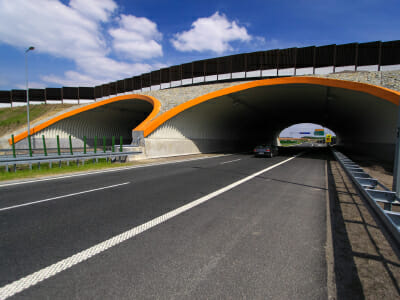
Jul 2, 2015 | Focolare Worldwide
https://vimeo.com/132331626 Everyone who experiences its effects says that the Economy of Communion (EoC) is a way of life, more than a way of running a business. And it is precisely for this reason that the most diverse businesses decide to administrate their activities in the full spirit of the EoC. Complex Projekt, which is in the business of projection and construction of roads, motorways and bridges, is also an EoC. In 1990, when the EoC began in Brazil, the business was in trouble. The removal of the communist regime raised strong doubt and uncertainty, and the transition to a capitalist system generated constant questioning and mistrust. The very concept of private property created uncertainty and discomfort in entrepreneurs. Andrzej Milkowski, president of Complex Projekt, discovered the answer to “freeing himself from the pressures of private property” in the EoC. Thanks to the EoC, he found that he was “merely an administrator” and that “the business owner was God.” This made Milkowski realise that what mattered most in the business was its human capital, and that good management depended on the values one believed in. For him, they were the values of the Gospel put into practice by applying the teaching of St. John Paul II: “to be, rather than to speak”. This kind of talk can sound far removed from the real business world, but in the long run, in Complex Projekt, it actually made the difference.  “Our work consists of creating complex infrastructure projects, and that carries a great responsibility,” Milkowski explains. “In the EoC proposal I found the interior freedom that was needed and the distance from myself, values which led me to no longer make decisions on my own, but through shared understanding. Such decisions then prove to be just right for growing the company.” Milkowski describes how colleagues and personnel strive to base their life on mutual respect as they strive to create a climate of trust and giving priority to interpersonal relations. The internal regulations include the Golden Rule, a version of which can be found in the sacred texts of all religions: ‘Everything that you want others to do for you, do also for them’. It is “understood as an opportunity,” the president explains, “offered to each employee for them to freely decide.” Two years ago, Andrzej Milkowski began handing over the administration of the business to his son, Stanislaw. This generational transition is also being carried out in the light of the values that have been acquired over years. Andrezej reflects: “I think it is a result of the working lifestyle that all of us in the business, personnel and administration, receive from God. If we make even a small attempt each day to live the values of the Gospel,” the Polish businessman concludes, “we receive ‘something more’ from the Creator, a greater capacity even in front of things like project planning, professional and family difficulties which can be listened to and discussed. This is how we build the Kingdom of God . . . and the rest will be given us as well. We experience it every day. Indeed, in spite of the economic crisis, the business continues to grow and develop.”
“Our work consists of creating complex infrastructure projects, and that carries a great responsibility,” Milkowski explains. “In the EoC proposal I found the interior freedom that was needed and the distance from myself, values which led me to no longer make decisions on my own, but through shared understanding. Such decisions then prove to be just right for growing the company.” Milkowski describes how colleagues and personnel strive to base their life on mutual respect as they strive to create a climate of trust and giving priority to interpersonal relations. The internal regulations include the Golden Rule, a version of which can be found in the sacred texts of all religions: ‘Everything that you want others to do for you, do also for them’. It is “understood as an opportunity,” the president explains, “offered to each employee for them to freely decide.” Two years ago, Andrzej Milkowski began handing over the administration of the business to his son, Stanislaw. This generational transition is also being carried out in the light of the values that have been acquired over years. Andrezej reflects: “I think it is a result of the working lifestyle that all of us in the business, personnel and administration, receive from God. If we make even a small attempt each day to live the values of the Gospel,” the Polish businessman concludes, “we receive ‘something more’ from the Creator, a greater capacity even in front of things like project planning, professional and family difficulties which can be listened to and discussed. This is how we build the Kingdom of God . . . and the rest will be given us as well. We experience it every day. Indeed, in spite of the economic crisis, the business continues to grow and develop.”
Jul 1, 2015 | Focolare Worldwide
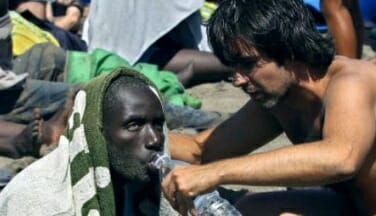
Jun 30, 2015 | Focolare Worldwide
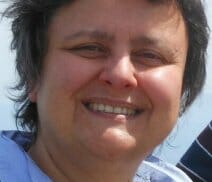 “When it comes to migrations, the numbers say more than the words. In one report published in October 2014, it was estimated that there were 7,124,000,000 people in the world. If the wealth were equally distributed, every person would have a median annual income of 14 thousand USA dollars. In reality, the income of 2,700,000,000 people is two USA dollars per day. Now, this economic inequality, which is a social inequality, has a very strong impact on migration. Entire populations pick up and move toward wealthier countries.” What is a migrant? In 2013, the United Nations claimed that there were 232 million married people in the world. And it defined a migrant as “a person who leaves his or her own country for reasons of employment and settles in another place for a period of more than twelve months.” That’s the only definition that you find, Flavia Cerino stressed. In fact, there are the refugees (the ones who are in need of political asylum in another country); the refugees fleeing from war situations, the so-called “illegals” (who move without having a document that makes them eligible to enter another country). And the reasons vary: war, poverty, studies, cultural interest, natural disasters . . .
“When it comes to migrations, the numbers say more than the words. In one report published in October 2014, it was estimated that there were 7,124,000,000 people in the world. If the wealth were equally distributed, every person would have a median annual income of 14 thousand USA dollars. In reality, the income of 2,700,000,000 people is two USA dollars per day. Now, this economic inequality, which is a social inequality, has a very strong impact on migration. Entire populations pick up and move toward wealthier countries.” What is a migrant? In 2013, the United Nations claimed that there were 232 million married people in the world. And it defined a migrant as “a person who leaves his or her own country for reasons of employment and settles in another place for a period of more than twelve months.” That’s the only definition that you find, Flavia Cerino stressed. In fact, there are the refugees (the ones who are in need of political asylum in another country); the refugees fleeing from war situations, the so-called “illegals” (who move without having a document that makes them eligible to enter another country). And the reasons vary: war, poverty, studies, cultural interest, natural disasters . . . 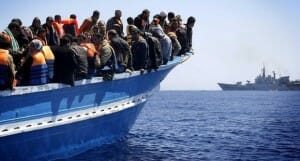 What were the most repeated words in the reports from the workshops at the New Humanity international training course where this topic was discussed? A few things stood out in the workshops. “The first was “fear,” fear of anything that is different from me,” continued Cerino. In reality, diversity is a great enrichment. We see that in nature where biological diversity is very enriching. If we lost it we’d be heading for extinction. We obviously have to consider the fear that is born of uncertainty; and this brings us to the topic of public order, national security. One thing is public order, and another thing is fear of diversity. Another topic that was frequently raised was the family. A migrant who travels alone, leaving the family behind, finds it difficult to describe the hardships he or she faces, in order not to worry their loved ones. But actually it would be important to tell one’s family what the real life situation is like, so that they will have a real understanding of what migration entails also in terms of reuniting the family, since families generally look forward to staying together. Another word that came up was interculturalism. That is the capacity to overcome the fear of diversity in order to create an environment of encounter and understanding. And it’s not only cultural understanding, but existential understanding, sharing problems. The migrant should be placed in a position of giving, but he and she believe that they have nothing to give when they are not recognized as persons who can act as active citizens, and therefore they are excluded from the start.
What were the most repeated words in the reports from the workshops at the New Humanity international training course where this topic was discussed? A few things stood out in the workshops. “The first was “fear,” fear of anything that is different from me,” continued Cerino. In reality, diversity is a great enrichment. We see that in nature where biological diversity is very enriching. If we lost it we’d be heading for extinction. We obviously have to consider the fear that is born of uncertainty; and this brings us to the topic of public order, national security. One thing is public order, and another thing is fear of diversity. Another topic that was frequently raised was the family. A migrant who travels alone, leaving the family behind, finds it difficult to describe the hardships he or she faces, in order not to worry their loved ones. But actually it would be important to tell one’s family what the real life situation is like, so that they will have a real understanding of what migration entails also in terms of reuniting the family, since families generally look forward to staying together. Another word that came up was interculturalism. That is the capacity to overcome the fear of diversity in order to create an environment of encounter and understanding. And it’s not only cultural understanding, but existential understanding, sharing problems. The migrant should be placed in a position of giving, but he and she believe that they have nothing to give when they are not recognized as persons who can act as active citizens, and therefore they are excluded from the start.  Flavia Cerino cited a question posed by Igino Giordani many years ago: “What do I do for him?, referring to an immigrant. “That’s the question we’re asking ourselves now. What do we do? There are countless experiences, great projects. My experience is the same as many of you. It turns on two elements: the first is that everything depends on a personal sensitivity. As a human being I feel called, and my and put into question right where I live, by a problem that I see in my next door neighbor. And I try to figure out what I should do, turning to the people and institutions who have the authority to act. Because it’s a matter of alleviating, making the presence of a migrant easier in my city. Actually, to the question of “What can I do?” we can answer by acting and doing what is within our power; so, getting together with others who share this desire, beginning with small gestures, we can weave together a network right where we are: simple gestures that generate a renewal of humanity right around us.” Source: “Reflections on migrations and interculturalism,” intervention during the New Humanity international training course (February 2015), coordinated by immigration expert Flavia Cerino. www.umanitanuova.org
Flavia Cerino cited a question posed by Igino Giordani many years ago: “What do I do for him?, referring to an immigrant. “That’s the question we’re asking ourselves now. What do we do? There are countless experiences, great projects. My experience is the same as many of you. It turns on two elements: the first is that everything depends on a personal sensitivity. As a human being I feel called, and my and put into question right where I live, by a problem that I see in my next door neighbor. And I try to figure out what I should do, turning to the people and institutions who have the authority to act. Because it’s a matter of alleviating, making the presence of a migrant easier in my city. Actually, to the question of “What can I do?” we can answer by acting and doing what is within our power; so, getting together with others who share this desire, beginning with small gestures, we can weave together a network right where we are: simple gestures that generate a renewal of humanity right around us.” Source: “Reflections on migrations and interculturalism,” intervention during the New Humanity international training course (February 2015), coordinated by immigration expert Flavia Cerino. www.umanitanuova.org





 “When it comes to migrations, the numbers say more than the words. In one report published in October 2014, it was estimated that there were 7,124,000,000 people in the world. If the wealth were equally distributed, every person would have a median annual income of 14 thousand USA dollars. In reality, the income of 2,700,000,000 people is two USA dollars per day. Now, this economic inequality, which is a social inequality, has a very strong impact on migration. Entire populations pick up and move toward wealthier countries.” What is a migrant? In 2013, the United Nations claimed that there were 232 million married people in the world. And it defined a migrant as “a person who leaves his or her own country for reasons of employment and settles in another place for a period of more than twelve months.” That’s the only definition that you find, Flavia Cerino stressed. In fact, there are the refugees (the ones who are in need of political asylum in another country); the refugees fleeing from war situations, the so-called “illegals” (who move without having a document that makes them eligible to enter another country). And the reasons vary: war, poverty, studies, cultural interest, natural disasters . . .
“When it comes to migrations, the numbers say more than the words. In one report published in October 2014, it was estimated that there were 7,124,000,000 people in the world. If the wealth were equally distributed, every person would have a median annual income of 14 thousand USA dollars. In reality, the income of 2,700,000,000 people is two USA dollars per day. Now, this economic inequality, which is a social inequality, has a very strong impact on migration. Entire populations pick up and move toward wealthier countries.” What is a migrant? In 2013, the United Nations claimed that there were 232 million married people in the world. And it defined a migrant as “a person who leaves his or her own country for reasons of employment and settles in another place for a period of more than twelve months.” That’s the only definition that you find, Flavia Cerino stressed. In fact, there are the refugees (the ones who are in need of political asylum in another country); the refugees fleeing from war situations, the so-called “illegals” (who move without having a document that makes them eligible to enter another country). And the reasons vary: war, poverty, studies, cultural interest, natural disasters . . . 